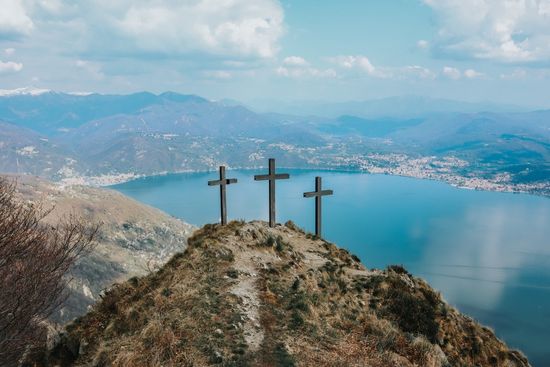The Creation of the World—What the Bible Really Says
When we think about the biblical Creation story, we think of just that: the world being created by the Creator. And while God’s creation of the world is marvelous and miraculous in its own right, it’s about far more than the sudden appearance of plants, animals, and humans.
Creation is one of our greatest examples of God’s beautiful love for us and for this world. God created the earth so He could commune with us more closely, and vice versa. He also created it for us, giving it to us so we could take care of it.
In fact, the earth was meant to be like a temple where we could perpetually dwell in God’s presence. No pain, no suffering. Just a beautiful relationship with God.
Let’s take a trip back in time to explore the details of Creation as we find it in Genesis. We’ll discover what Scripture tells us about things like:
- The purpose of God’s creation
- A literal 7 days of creation
- A special seventh day of rest
- God’s model for life and for eternity
Let’s start with the “why” behind creation.
What was the purpose of Creation?
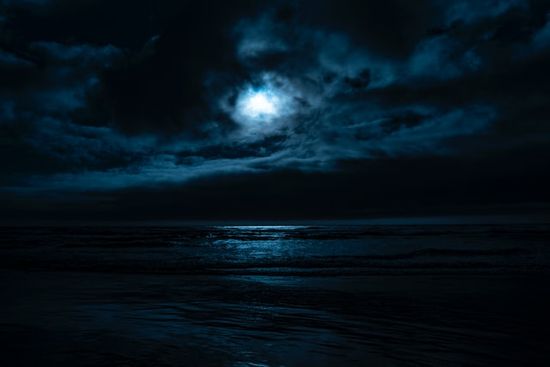 God created a beautiful, perfect world for us to live in. And He created us to be able to receive His love, love the people and the world around us, and to freely return that love to Him.
God created a beautiful, perfect world for us to live in. And He created us to be able to receive His love, love the people and the world around us, and to freely return that love to Him.
This question can also be asked of a couple who desires to have a child. What is the purpose of having a child? Well, ideally, a couple would want a child to love and nurture a new human being. To bring it happiness and joy. To build an environment that helps them thrive and live a full life.
The same can be said of God and creation.
We can better understand this answer by looking at who God is. What is His character, and what purpose could He have had to create this world and humanity?
The Bible tells us that God is love (1 John 4:8). It also tells us that He is nurturing and creative (Isaiah 49:15, Psalm 104:24).
These aren’t just characteristics of God—this is who God is! God is our ultimate example of love and creativity.
God’s creative power, exemplified in the beauty of Creation, is an expression of His power, His selflessness, and His infinite love.1
While we don’t know the status of other galaxies and worlds in the universe, the Bible tells us that our earth was without form before Creation (Genesis 1:2). There was no organization of time, matter, or anything else.
Over 6 days, God took the dark, formless earth and organized it into something beautiful that all of His creations could share and cultivate.
What an amazing gift: to be given the free choice to love God, love others, and love our earth.
Let’s take a deeper look into each of the 7 days to learn more about what God created.
Were there only seven days of creation?
Before diving into the specifics of each day, let’s answer a commonly asked question: did God really create the world in only seven days?
The Bible says that yes, God did create the world in six days, and He made a point to rest on the seventh day in order to reflect upon it. This span of time would be what we know as a week today.
For example, the story of Creation in Genesis, the first book of the Bible, separates the account of each of the days with “and there was evening and there was morning,” marking one day, not an ambiguous span of years (Genesis 1, ESV). Another example is in the Ten Commandments God gave to Moses: “In six days the Lord made the heavens and the earth, the seas and all that is in them, and rested on the seventh day” (Exodus 20:11, NKJV).
When we look at the world and its complexity, it’s hard to imagine it could be created in six days, but God is all-powerful and possesses the amazing ability to command molecules together in an instant!
And the order of creation is important to note, too. In the first three days of creation, God brings order to formlessness and organizes three distinct realms: day and night, the sky and the waters, and the earth. In the last three days of creation, God fills those uninhabited realms with creations to live or dwell there: the sun, moon, and stars, the fish and the birds, and creatures of the land, including humans.
Now let’s explore each day in particular.
Day 1: Day and night
 On the very first day of Creation, God created light.
On the very first day of Creation, God created light.
With just a simple phrase, “Let there be light,” God filled the darkness with His glorious light and separated the two from each other.
When He saw that He had divided the light from the darkness, He proclaimed that it was good, called the light day and the darkness night (Genesis 1:3-5). This also means that on the first day, God established our conception of time.
Day 2: Sky and seas
On the second day of Creation, the Bible tells us that God created the “firmament” (Genesis 1:6). This isn’t a word we hear or use very often, but essentially, the firmament means the heavens or the sky.
So, the unformed waters from the beginning of the creation story are separated from the sky or the atmosphere (Genesis 1:2; Genesis 6:7-8). God creates two distinct spaces here: the skies and the seas.
Day 3: Dry land
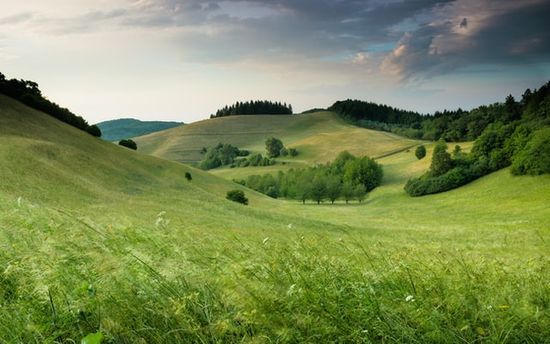 On the third day, God created the dry land and separated it from the waters. The Bible tells us that He gathered the land together and said, “Let the earth bring forth grass, the herb that yields seed, and the fruit tree that yields fruit,” and it happened!
On the third day, God created the dry land and separated it from the waters. The Bible tells us that He gathered the land together and said, “Let the earth bring forth grass, the herb that yields seed, and the fruit tree that yields fruit,” and it happened!
Imagine barren land suddenly sprouting soft green grass, hillsides filled with flowers, and fruit trees loaded with delicious fruit to eat. Sounds like paradise, doesn’t it? God planned it to be a perfect place for His creatures to dwell in.
At the end of the third day, once again, God saw that “it was good” (Genesis 1:12 NKJV).
Day 4: Sun, moon, and stars
On the fourth day, God created the sun, moon, and stars to fill the day and the night with the greater light (sun) and the lesser lights (moon and stars) (Genesis 1:16).
You might be wondering: “Wasn’t there light on the first day?” And the answer is yes. God Himself is a source of light. And while there was light on the first day of Creation, God harnessed that light into the system of the sun, moon, and stars to help us keep track of seasons, days, and years (Genesis 1: 14).
Day 5: Creatures of the sea and birds of the air
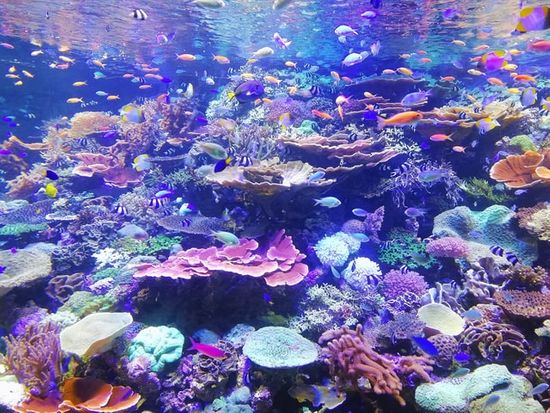 Next, God wanted to create living beings to inhabit the skies and seas He created on the second day. So on day five, He made sea creatures to fill the waters and birds to fill up the skies.
Next, God wanted to create living beings to inhabit the skies and seas He created on the second day. So on day five, He made sea creatures to fill the waters and birds to fill up the skies.
God also commanded these creatures to “be fruitful and multiply” (Genesis 1:22 NKJV). God wanted the earth to be abundant with life.
Day 6: Land animals and humans
On the sixth day of creation, God made creatures to dwell on the earth to enjoy the fullness of beauty and sustenance the earth was filled with. Anything that lives on dry land, God created on this day.
God also created humanity on this day.
There’s something different about the way God created humans. Something more special, more intimate.
Instead of just speaking humanity into existence like He did for everything else, God formed us out of the clay of the ground and filled us with the breath of life (Genesis 2:7).
Isn’t it incredible to think that God took the time to shape us and breathe life into us? He cares for us so much that He even made us in His image—giving us the ability to create and be creative too (Genesis 1:28)!
God also made humanity to care for the home He created for them: the earth. Just as God nurtured the earth throughout creation, we were to continue to nurture and care for it, reflecting God’s representation, His image, to all of Creation.
In the book of Psalms, the poet David reflects on this purpose for humanity:
“What is man that you are mindful of him,
And the son of man that you visit him?
For You have made him a little lower than the angels
And You have crowned him with glory and honor.
You have made him to have dominion over the works of Your hands;
You have put all things under his feet,
All sheep and oxen—
Even the beasts of the field,
The birds of the air,
And the fish of the sea
That pass through the paths of the seas.
O Lord, our Lord
How excellent is Your name in all the earth!”
(Psalm 8: 4-9, NKJV).
What an incredible gift God has given us.
So the sixth day of Creation ended with an earth full of life and beauty. Wouldn’t it make sense for God and His creations to take the time to enjoy it?
Well, that’s exactly what happened next.
Day 7: A day of rest
On the seventh day of creation, there wasn’t any creation happening at all, actually! Still, the seventh day from the Creation account is a special one because on this day, God rested from His work and enjoyed the beauty of the earth and of nature. This day is the climax of all of creation.
The Bible tells us that, because God rested on this day, He sanctified it, or in other words, He made it holy (Genesis 2:3; Exodus 20:11).
This seventh day is also in the Ten Commandments, and it’s what God calls the Sabbath day (Exodus 20:8-12). It’s a day of peace and rest, not a day of work. It was ordained since the very beginning of the world, and God meant for all His creation to be in communion with Him, especially on this day.
This is also a day to reflect on the magnitude and complexity of God’s creation. To “behold the evidence of God’s wisdom and goodness, that our hearts might be filled with love and reverence for our Maker.”2
But what is the purpose of the seventh-day rest? Did God need to rest?
Why a day of rest?
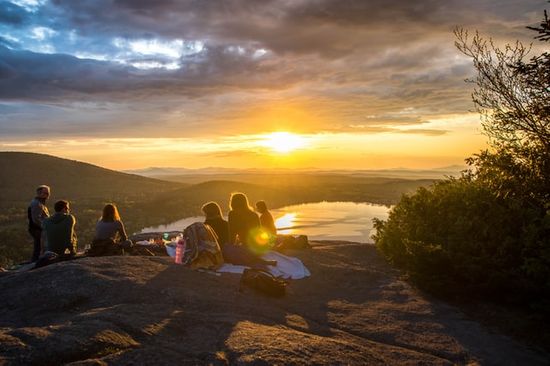 When we think of a God who can literally speak things into existence, we don’t really think of a being who needs to take a break. And of course, because God is all-powerful, He didn’t need to rest.
When we think of a God who can literally speak things into existence, we don’t really think of a being who needs to take a break. And of course, because God is all-powerful, He didn’t need to rest.
However, God gave us a day of rest as a gift. The seventh-day Sabbath was established at Creation as a memorial to God’s power, holiness, and love for us.
What’s more, this wasn’t to be merely a break from activity for the sole purpose of restoring energy. This is rest in the fullest sense, where one switches from producing things to enjoying things. Noticing. Contemplating. Intentionally focusing on the intricacies of life that we so easily miss when we’re stressed out or in a hurry.
Have you noticed that if you go, go, go without stopping, sometimes you can forget what truly matters in life? The Sabbath is an act of resistance against that! God knew we would need rest, so even in the paradise of a sinless, new world, God set aside holy time for rest.
When we keep the Sabbath day, we are celebrating God’s creation and how He paused to take it all in on the seventh day.
The Sabbath is just one of the aspects of the Creation story that serve as our model for life right now and for life in eternity. Let’s talk a bit more about how the model of Creation and the Garden of Eden can add fullness to our lives.
4 things we can learn from Creation about God’s purpose for life and for eternity
In the story of Creation, we find God’s ideal model for life. We can learn from that model to live more fully now, as well as gain a better understanding of what life will be like in Heaven and on our restored planet.
So what can we learn from the Creation story about God’s purpose for humanity and for eternity? God created us to:
- Nurture His creations and allow His creations to nurture us
- Create and be creative
- Cultivate relationships with Him and with each other
- Enter into celebration and rest with Him
Nurture and be nurtured by God’s creations
First of all, we can learn that God made us, not only to nurture His creations, but also to be nurtured by His creations.
When we take care of God’s earth, the earth takes care of us. Everything God created works in relationship, reflecting God’s nature of selfless love throughout His creation.
Create and be creative
 We can also learn that God desires for us to both create and be creative. When God made us in His image, He endowed us with His creative ability.
We can also learn that God desires for us to both create and be creative. When God made us in His image, He endowed us with His creative ability.
Humanity’s ability to bear and nurture children is one way we can reflect God’s nature (Genesis 9:7). However, our beautiful talents of art, writing, music, science, architecture, etc. are all examples of God’s creative image! We can use these talents to praise God and celebrate His original creation.
Cultivate relationships with Him and others
God’s purpose for creating humanity shows us that God is relational. He desires to love us, and in return, gives us the choice to freely love Him back. We can also see the relational character of God in the way He created Adam and Eve to work together and dwell in the Garden of Eden (Genesis 2:21-22).
Enter into celebration and rest with Him
As we’ve discussed, Sabbath was established at Creation. God created a framework in which we can work and create but also rest and celebrate His creation. And the Sabbath is an opportunity for us to cultivate our relationship with God and enter into His presence.
Creation is all about God’s love for us
The Creation story is marvelous. It simultaneously shows us God’s power, love, holiness, character, and ideal model for our lives now and for eternity.
When we spend time reading about the Creation story, we can more excitedly look forward to a new earth when Jesus comes again and restores us back to the beauty of a sinless world.
But until then, there is plenty to learn about how to live like God’s people in this world. If that sounds like something you’d like to do, you can check our Sabbath page or our Bible studies page.
Related Pages
Questions about Adventists? Ask here!
Find answers to your questions about Seventh-day Adventists
More Answers
Why Many Seventh-day Adventists Choose a Vegetarian Diet
Why Many Seventh-day Adventists Choose a Vegetarian Diet?You may have an Adventist friend who is vegetarian, or maybe you’re attending a Seventh-day Adventist Church for the first time and notice the potluck doesn’t have any meat. This isn’t unusual in Adventism. In...
The Health Benefits of Fresh Air You Should Know About
The Health Benefits of Fresh Air You Should Know About“When you can’t breathe, nothing else matters,” the American Lung Association tells us. And while that’s true, the kind of air you’re breathing will determine the health benefits you experience. Breathing fresh...
What Do Seventh-day Adventists Choose to Eat?
What Do Seventh-day Adventists Choose to Eat?Food blogs overwhelm the internet; food fads are all the rage; and copycat and healthy versions of food are the subject of many a get-together. Eating—and eating the best way—is a big deal. And everybody has a different...
10 Incredible Ways Sunlight Can Improve Your Health
10 Incredible Ways Sunlight Can Improve Your HealthAre you concerned about sunlight’s negative effects? You might be the one who lathers on the sunscreen and covers up when you go outside. Or maybe you avoid being outside as much as possible. You might be surprised,...
Why Is Water So Important?
Why Is Water So Important?We all know that water is a substance we can’t live without. It quenches our thirst and keeps us hydrated on the inside. And it’s necessary for hygiene and cleansing on the outside too. But did you know that the cleansing properties of water...
Ellen White’s Writings and the Adventist Health Message
Seventh-day Adventists are known for their emphasis on healthy living. And Ellen G. White was a significant influence in the development of this priority and practice among Adventists.
Health Clinics
Ellen White and Adventist Healthcare—Ahead of Their Time Medical care in the mid-1800s was primitive, to say the least. Basic concepts we take for granted—such as proper handwashing or recognizing the dangers of bloodletting—were nonexistent. And doctors often had...
What Did Ellen White Teach about Vegetarianism?
What Did Ellen White Teach about Vegetarianism?One thing you might have heard about Seventh-day Adventists is their emphasis on a vegetarian lifestyle. If you’re wondering why that is, it goes back to our church’s humble beginnings: As Adventists studied the Bible,...
How Ellen White’s Teachings Can Improve Your Health
How Ellen White’s Teachings Can Improve Your Health Healthcare in the nineteenth century was said to leave “more disease than it took away” with its use of bloodletting and “medicines” like mercury and arsenic.1 As people questioned these methods, new approaches...
Change Your Perspective on Life with These 5 Mindsets
5 Biblical Mindsets to Change Your Life for the Better Sometimes, life is just plain hard. There’s no way around it. So would thinking about things differently really change anything? Our perspective on life, and everything it throws at us, affects more than we’re...
Bible Promises for When You’re Worried or Fearful
Bible Promises for When You’re Worried or Fearful The Bible is full of beautiful promises that can comfort us in a variety of situations. They can give us hope when we are hopeless, make us feel grateful for God’s love, and comfort us when we’re grieving or suffering....
12 Practical Ways to Overcome Worry
12 Practical Ways to Overcome Worry DISCLAIMER: This content is for informational purposes only. It does not constitute any professional medical advice and is not intended as a substitute for professional mental health therapy. It’s easy to get stuck in a cycle of...
How the Bible Talks About Worry, Fear, and Anxiety
How the Bible Talks About Worry, Fear, and Anxiety Worry and fear are the ingredients of anxiety. It’s easy to see how the world isn’t perfect—and the anticipation of a bad event or experience (that may or may not even happen) can end up draining the peace and...
How to Calm Anxious Thoughts, Using the Bible
How to Calm Anxious Thoughts, Using the Bible You were expecting a phone call from your daughter half an hour ago, and she still hasn’t called. She’s also not answering your calls. You feel your heart thumping as your thoughts race: What if she’s been in a car...
What You Should Know About the Adventist Health Studies
What You Should Know About the Adventist Health StudiesYou may have heard that Seventh-day Adventists care about health. But what you may not know is that Adventists have been the subjects of long-term research into lifestyle and health. Since 1958, researchers from...
Benefits of Sunlight
Yes, There Are Health Benefits of SunlightDespite the bad reputation it’s gotten, sunlight is generally associated with positivity, as shown by songs like “You Are My Sunshine,” or phrases that refer to delightful people as having a “sunny disposition.” There’s a...
Why Your Body Needs Rest for Optimal Health
Why Your Body Needs Rest for Optimal HealthStruggling to think straight? Wondering why you can’t remember that important tidbit you heard earlier today? Feeling like your emotions are about to explode? These are just some of the symptoms that can reveal your need for...
The Seventh-day Adventist Diet: One of Our Key Longevity Secrets
The Seventh-day Adventist Diet: One of Our Key Longevity SecretsOats, avocados, lentils, tofu—probably not what you first think of in a standard American diet. But if you show up at the home of an Adventist, chances are you may be served one of these staples. Out of a...
Why You Need Fresh Air
Why You Need Fresh Air“When you can’t breathe, nothing else matters,” the American Lung Association tells us. We couldn’t agree more! Breathing in clean air is an essential part of caring for our bodies, which God has given us. Together with other health principles,...
Sabbath Meal
Everything You Need to Know About Sabbath MealsFor Seventh-day Adventists, sharing a Sabbath meal with friends and family is one of the most special and memorable parts of the Sabbath. That’s why we want to share with you all about Sabbath meals and why they’re such a...
Adventists and Healthy Living
Adventists and Healthy LivingWhat’s the Adventist “Health Message” All About? One thing Seventh-day Adventists are known for is their emphasis on living healthy lives. Since our bodies are living temples of the Holy Spirit (1 Corinthians 6:19, 20), we strive to stay...
Water’s Importance—Physical Benefits and Spiritual Applications
Water’s Importance—Physical Benefits and Spiritual Applications We all know that water is a substance we can’t live without. Not only does it quench our thirst and keep us hydrated from the inside, but it’s necessary for hygiene and cleansing on the outside as well....
How Important is a “Day of Rest?”
How Important is a “Day of Rest?” Why God Created a Day for Downtime by Martin Casper Do you ever experience the feeling of complete overload? Do you feel like the only way you can get ahead is by slamming it 24/7? I hear these types of comments more and more...
7 Reasons Why a Day of Rest is Important
7 Reasons Why a Day of Rest is ImportantWe live in a fast-paced world. It seems as if success is measured in how much you can do in a short amount of time. (Extra points for the service or product that is available 24/7). The idea that we will be more successful if we...
How do Adventists choose what to eat?
How do Adventists choose what to eat?Every day, parents go through the ritual of getting their kids to eat what is healthy and good while trying to steer them away from what can hinder the growth of their developing bodies. Nutritionists work with their clients to...
How Can I Have a Better Marriage?
Is it possible to have a happy marriage?
Why are many Adventists Vegetarian?
Why are many Adventists Vegetarian?The diet intended for man is outlined in Genesis 1:29, “And God said, ‘See, I have given you every herb that yields seed which is on the face of all the earth, and every tree whose fruit yields seed; to you it shall be for food.’”...
Didn’t find your answer? Ask us!
We understand your concern of having questions but not knowing who to ask—we’ve felt it ourselves. When you’re ready to learn more about Adventists, send us a question! We know a thing or two about Adventists.

